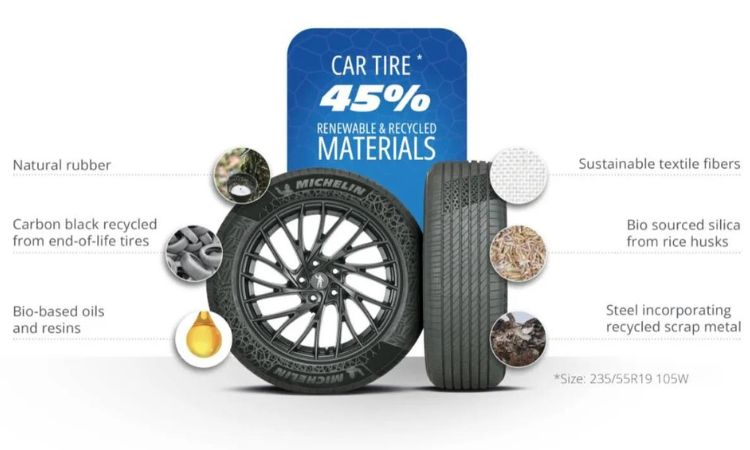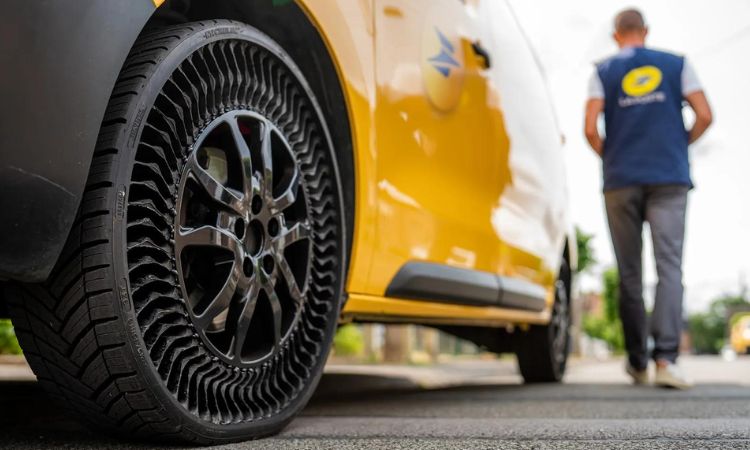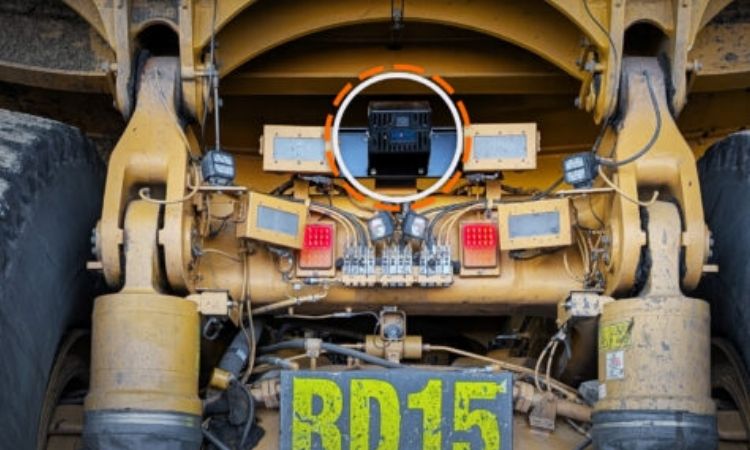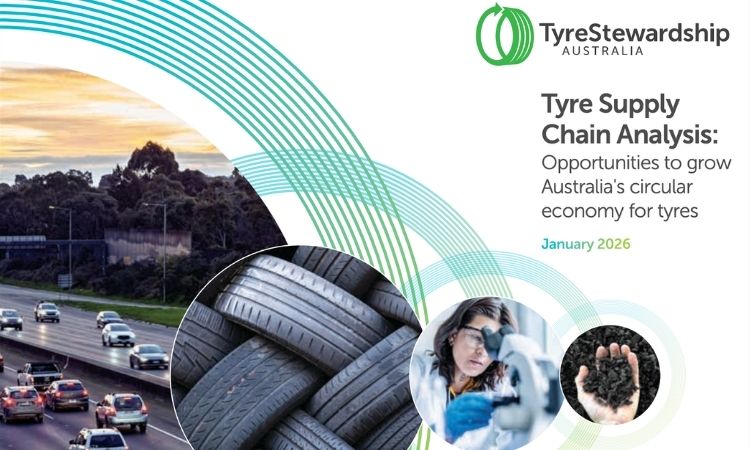Michelin's sustainable tire goals: fewer tires for EVs, more innovation
Michelin, one of the leading tire supplier for electric vehicles (EVs) in the U.S., is striving for fewer but better tires. EVs wear out tires faster due to their weight and torque, posing a challenge. Michelin aims to produce longer-lasting, environmentally friendly tires. By 2030, they plan to have 40% renewable and recyclable materials in their tires, and 100% by 2050.

Michelin 45% Sustainable Tire – 2024 prototype. | Image by Michelin.
At a recent Michelin's sustainability summit hosted in Sonoma, California, the company showcased high-content sustainable material tires, set to go into production in 2025. These tires feature recycled steel, carbon black from end-of-life tires, and silica from rice husks, aiming to reduce environmental impact.
EVs, with their unique demands, need specialized tires to optimize range and performance. Michelin is working on airless tire technology and retread technology for commercial trucks, enhancing sustainability. Their efforts include reducing rolling resistance to improve EV efficiency and extending tire life to meet the needs of the heavier, torque-rich EVs.

Michelin Uptis airless tire. | Photo by Michelin.
Michelin’s sustainable initiatives are part of a broader push towards a circular economy. They're collaborating with other industry giants like Bridgestone and Goodyear to develop and use recycled carbon black and other materials, ensuring that the environmental footprint of tires is minimized throughout their lifecycle.
For a comprehensive look at Michelin's initiatives, read the full article on Green Car Reports here.
Weibold is an international consulting company specializing exclusively in end-of-life tire recycling and pyrolysis. Since 1999, we have helped companies grow and build profitable businesses.









